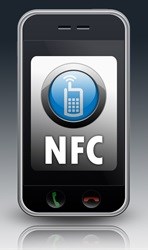What is the next innovation in payments?

In the period between 2000 and 2012, the African mobile market grew 40 times, reaching 650 million subscribers
This has placed Kenya in the position to develop and implement one of the most innovative and far reaching solutions to Africa's problems around banking infrastructure and payments.
Before 2007, Kenya had many of its people in the unbanked space, much like South Africa. What it didn't have was a well-developed banking infrastructure. The Kenyan government, because it has identified technology as a key driver of economic growth, invested in M-PESA, a mobile payment solution which is enabled by the existence of mobile connectivity. They found that as long as people had mobile phones they could transact without the need for physical currency. This has given the Kenyan economy a boost as many more people are now able to transact and participate meaningfully in the economy.
Near Field Communication
The next innovation in payments globally will be Near Field Communication (NFC). Many mobile devices around the world are already equipped with the NFC chip which is unique to the phone and SIM card. With this technology and the M-PESA platform, users will be able to scan their mobile phones across a reader which is loaded with the user's details, and with simple PIN verification, the user will complete the transaction without the need for credit or debit cards.
NFC could enable the use of a mobile wallet which would reduce the need for consumers to carry cash. This would be particularly relevant in high volume, small value transactions such as the taxi industry, used by more than 15-million South Africans every day4. Passengers would merely scan a mobile phone across an NFC reader, enter their PINs and payment would be effected. This has the potential to reduce issues around the handling of cash for both customers and taxi drivers. The drawback is that the infrastructure required to enable these types of transactions is yet to be developed but, of course, this can be mitigated by direct phone to phone transfers enabled by NFC.
The evolution of value added services
In South Africa, the mobile penetration rate is around 130 percent[5]. Many users have multiple SIM cards for two main reasons. In the more affluent market sector, users have multiple devices which require a separate SIM each - for example for a mobile phone, a tablet and a laptop. Those in search of a good deal on call and text rates will, typically, have a number of SIM cards from the different networks.
Clients in the telecommunications sector (telcos) have told us that they see little further growth in the sale of SIM cards as the market is reaching saturation point. The next area of growth was text or SMS but with the advent of free messaging applications like BBM and WhatsApp, there has been a significant decrease in revenues. Data is where telcos are making money now but this is also set to change as Wi-Fi becomes more widespread.
Value added services like M-PESA are set to be the next wave of revenue generation. An interesting application is the way in which companies could use mobile technology for the short term insurance industry.
In the scenario where a passenger is travelling on a long haul taxi from Johannesburg to Durban and has made payment via his mobile phone by swiping an on-board NFC reader, the mobile service provider could send the passenger a message offering life cover for the journey. For a small, once-off premium, the passenger could purchase life insurance for the trip. While this may seem far-fetched at the moment, companies like mobile service providers are making inroads in this area very quickly and these services are sure to become more widespread across the African continent as technological innovations improve.
References:
[1] GSMA, July 2013
[2] World Bank, December 2012
[3] Samsung, April 2013
[4] www.reuters.com
[5] Vodacom, April 2014






















